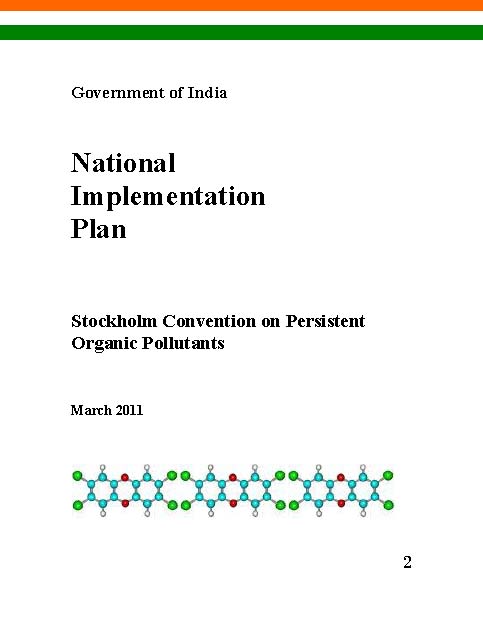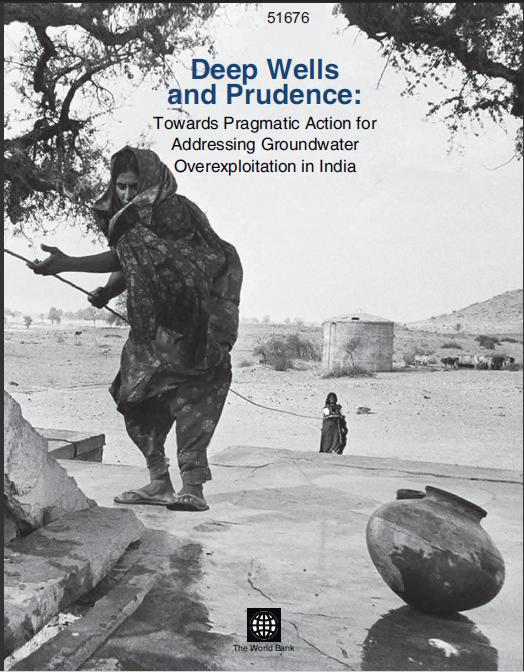/topics/climate-change
Climate Change
India's forests and REDD+ - A factsheet prepared by Ministry of Environment and Forests
Posted on 28 Apr, 2011 04:29 PMThe benefits of working with REDD and the need and benefits of getting more ambitious by accepting REDD+, which is about finding financial value for carbon stored in standing forests which therefore incentivises the positive elements of conservation is also elaborated here.
Global equatorial sea-surface temperatures over the last 150,000 years: An update from foraminiferal elemental analysis – A paper in Current Science
Posted on 25 Apr, 2011 10:21 AMSolar insolation changes are amongst various factors that affect sea-surface temperature, which in turn modulate global climate. Out of all the oceanic regions, equatorial region receives the maximum solar insolation and thus is the locale for the warmest waters. However, how the equatorial sea-surface temperature affects global climate, is still not clear.
Groundwater: From mystery to management - An article by TN Narasimhan
Posted on 22 Apr, 2011 12:07 PMGroundwater has been used for domestic and irrigation needs from time immemorial. It is a component of the hydrological cycle, vital for human sustenance. Unlike surface water, groundwater cannot be readily observed. Consequently, it was long considered to be mysterious or even occult in nature, influencing legal decisions relating to groundwater ownership and use.
Youth forum on climate actions and mountain issues - The International Centre for Integrated Mountain Development (ICIMOD), 8th – 12th August, 2011, Kathmandu, Nepal
Posted on 19 Apr, 2011 11:09 AMOrganizer: The International Centre for Integrated Mountain Development (ICIMOD)
Venue: ICIMOD headquarters, Kathmandu, Nepal
Description:
The overall objective of the Youth Forum is to celebrate International Year of Youth 2011/12 and International Youth Day, 12 August, through continuation of series of activities started in 2008 to build the next generation leadership in sustainable mountain development and climate change adaptation in ICIMOD Regional Member Countries (RMCs) and beyond, especially in the context of upcoming UNFCCC CoP 17 and Rio+20 meeting.
Distributional implications of climate change in India – A policy research working paper by World Bank
Posted on 14 Apr, 2011 03:49 PMThis working paper by World Bank analyzes how changes in the prices of land, labor, and food induced by modest temperature increases over the next three decades will affect household-level welfare in India.
Stockholm Convention on Persistent Organic Pollutants – Draft National Implementation Plan by the Ministry of Environment and Forests (2011)
Posted on 14 Apr, 2011 07:35 AM As per Article 7 of the Stockholm Convention, countries are required to develop the National Implementation Plan (NIP) of the Stockholm Convention on Persistent Organic Pollutants (POPs) to demonstrate how the obligations under the Convention would be implemented. The Convention was adopted with the objective of protecting human health and the environment from POPs and came into force from April 2006 in India.
As per Article 7 of the Stockholm Convention, countries are required to develop the National Implementation Plan (NIP) of the Stockholm Convention on Persistent Organic Pollutants (POPs) to demonstrate how the obligations under the Convention would be implemented. The Convention was adopted with the objective of protecting human health and the environment from POPs and came into force from April 2006 in India.
The Ministry of Environment and Forests, which is the nodal ministry for the Global Environmental Facility (GEF) and Stockholm Convention in India has prepared a NIP and has committed itself to its implementation subject to adequate assistance. It has had to harmonize the interests and stand points of different sectors involved and thereafter determine the position of the Indian government.
India understands that compliance with the obligations on Parties set out in the Convention will have a significant and positive influence not only on India‘s own chemicals management regime but also on the ultimate global success of the Convention. Since among the POPs only Dichloro Diphenyl Trichloroethane (DDT) and Polychlorinated Biphenyls (PCBs) are used in the country the inventory concentrated on DDT storages and facilities where PCB-containing electrical equipment was found.
Union Cabinet approves comprehensive mission document of the National Water Mission under National Action Plan on Climate Change - PIB release
Posted on 12 Apr, 2011 01:12 PMArticle courtesy: Press Information Bureau
The Union Cabinet has approved the Comprehensive Mission Document of the National Water Mission.
The National Water Mission is one of the 8 National Missions which form the core of the National Action Plan for Climate Change. The Mission Document for National Water Mission was drafted by the Ministry of Water Resources through consultative process with full involvement of State Governments, concerned Central Ministries, Non-Governmental Organizations, academicians and other stakeholders.
Deep wells and prudence - Towards pragmatic action for addressing groundwater overexploitation in India - A World Bank document (2010)
Posted on 12 Apr, 2011 01:51 AM India is the largest user of groundwater resources in the world. It is estimated that approximately 230 cubic kilometers per year is used annually, this is more than a quarter of the total world consumption from this resource.
India is the largest user of groundwater resources in the world. It is estimated that approximately 230 cubic kilometers per year is used annually, this is more than a quarter of the total world consumption from this resource.
It is in this context that this World Bank report looks at the reasons for this quantum of groundwater usage.
The report delves into socio-economic and political reasons and looks at policies which inadvertently promote so much extraction. The report also analyses various attempts to manage this resource. These attempts range from government and international agency efforts directed to grassroots mobilisations. Finally the report comes out with suggestions to deal with this crisis.
South Asia Media workshop on "Adaptation to Climate Change", 18th to 20th May 2011, Dhulikhel, Nepal
Posted on 11 Apr, 2011 05:37 PM
Organizers:
- Regional Climate Change Adaptation Knowledge Platform for Asia (Adaptation Knowledge Platform)
- The Asia Pacific Adaptation Network (APAN)
- The International Centre for Integrated Mountain Development (ICIMOD)
- The Asia Pacific Mountain Network (APMN)
Call for proposals: Research project on gender, climate change, agriculture and food security - CCAFS - Apply by 1st May 2011
Posted on 11 Apr, 2011 11:54 AM Climate Change, Agriculture and Food Security (CCAFS) is aimed at helping to inform policies and practices that reduce the negative impacts of climate change for people who depend on agriculture as a source of their livelihoods, without jeopardizing food security.
Climate Change, Agriculture and Food Security (CCAFS) is aimed at helping to inform policies and practices that reduce the negative impacts of climate change for people who depend on agriculture as a source of their livelihoods, without jeopardizing food security.





